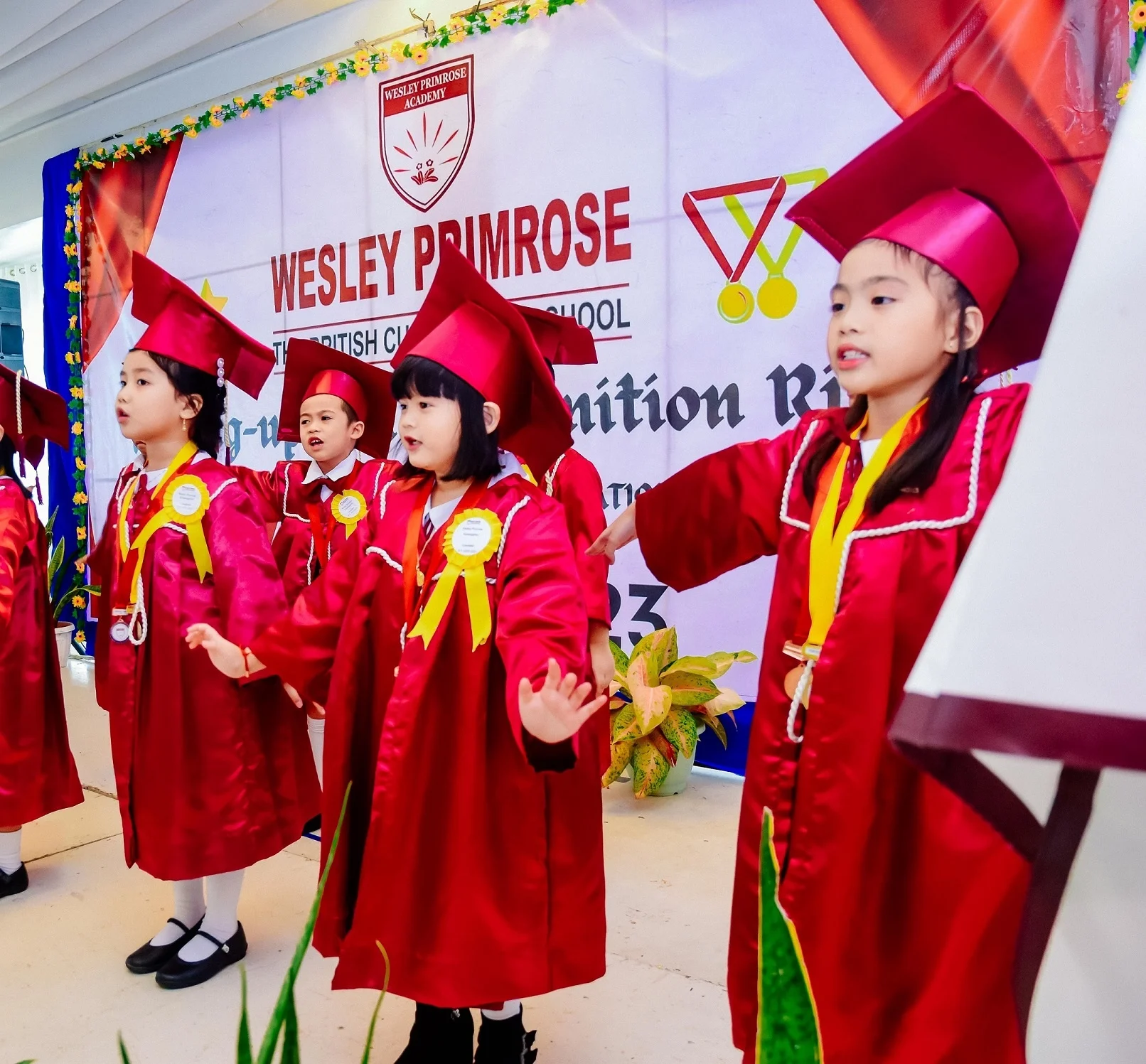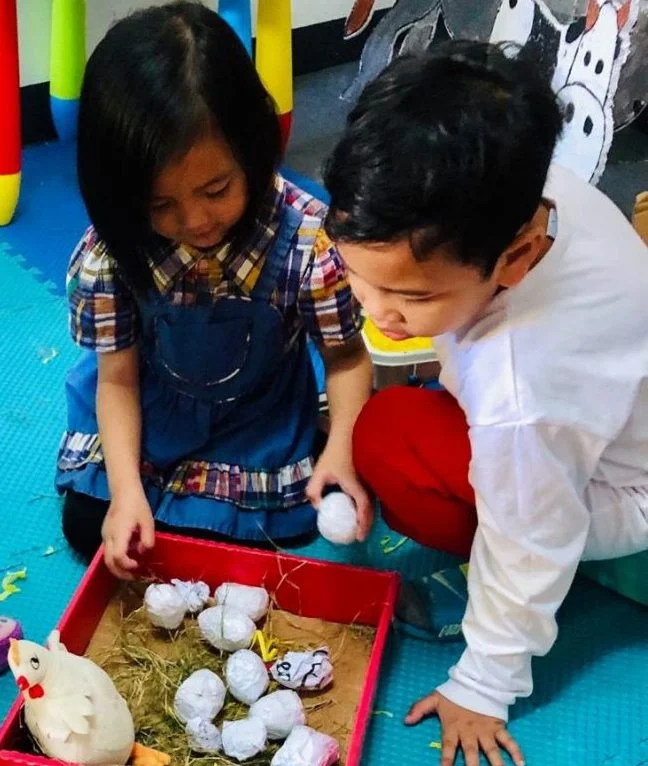At Kindergarten, your child’s muscle memory that has been developed and strengthened from repetitions and positive interactions will be challenged and scaffolded to the next level. This allows for greater concentration and focus as they sit to learn to read c-v-c words and digraphs to tricky words, sentences and short stories. They understand more complex Mathematical concepts such as number operations, problem solving, measurement, money, time and many more through a combination of structured, systematic approach and play-based, teacher-initiated approach of instruction.
Their vocabulary and use of language is finely honed by exposing them to stimulating stories and providing them an enabling environment with open-ended materials and role-play especially designed for child-led plays where their creative minds and imaginations are richly supported. They gain a deeper knowledge and understanding of the world through authentic interactions and direct experiences such as growing their own herbs and learning the ways to take care of them and using magnifying glasses to thoroughly investigate parts of the grasshopper.
Our weekly activities in addition to the academics include baking, arts and crafts, library time/story time, modelling with plasticines, building together, dressing-up and pretend plays. Set your child on the best pathway to success in primary school through our Kindergarten programme!

